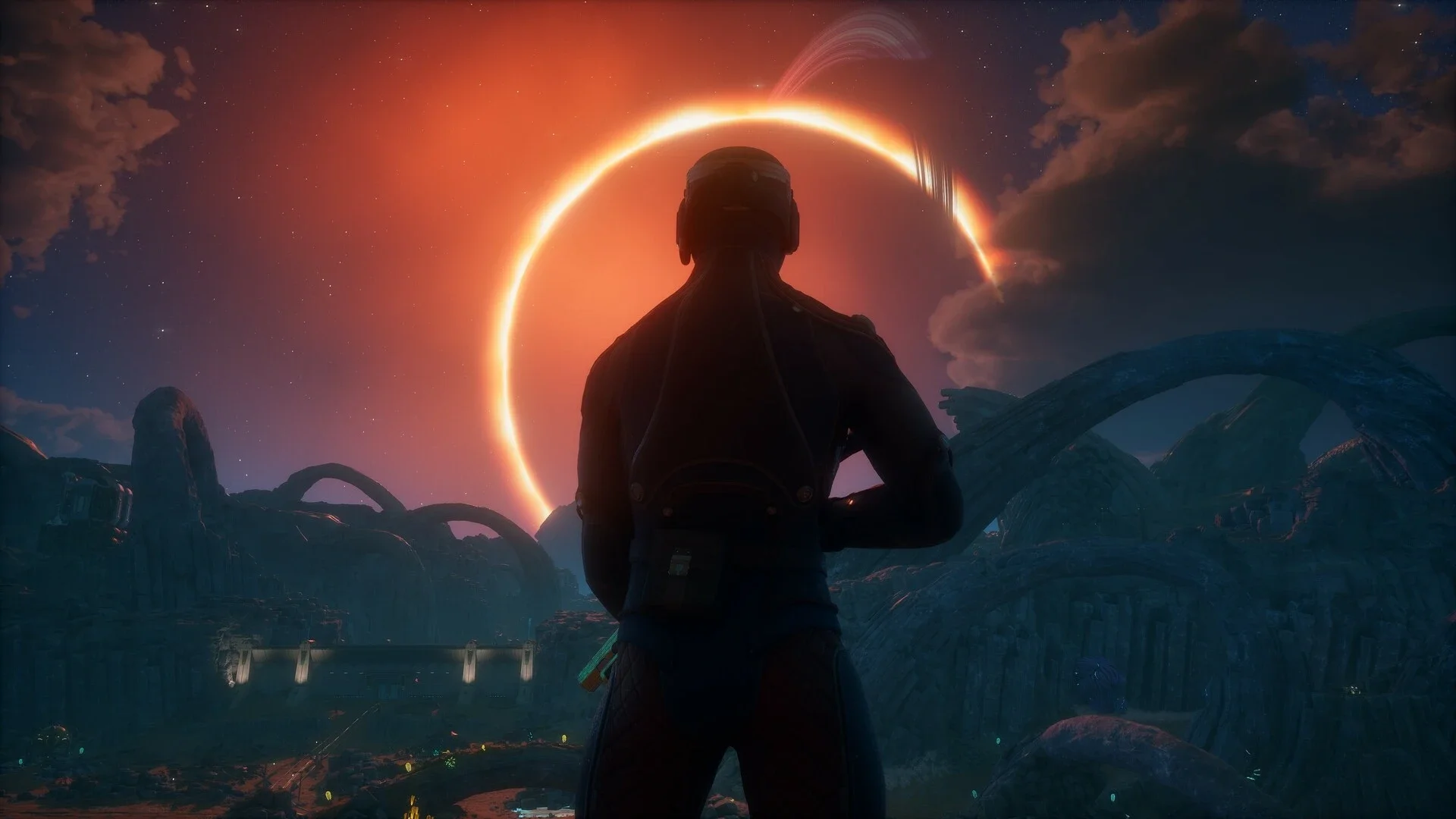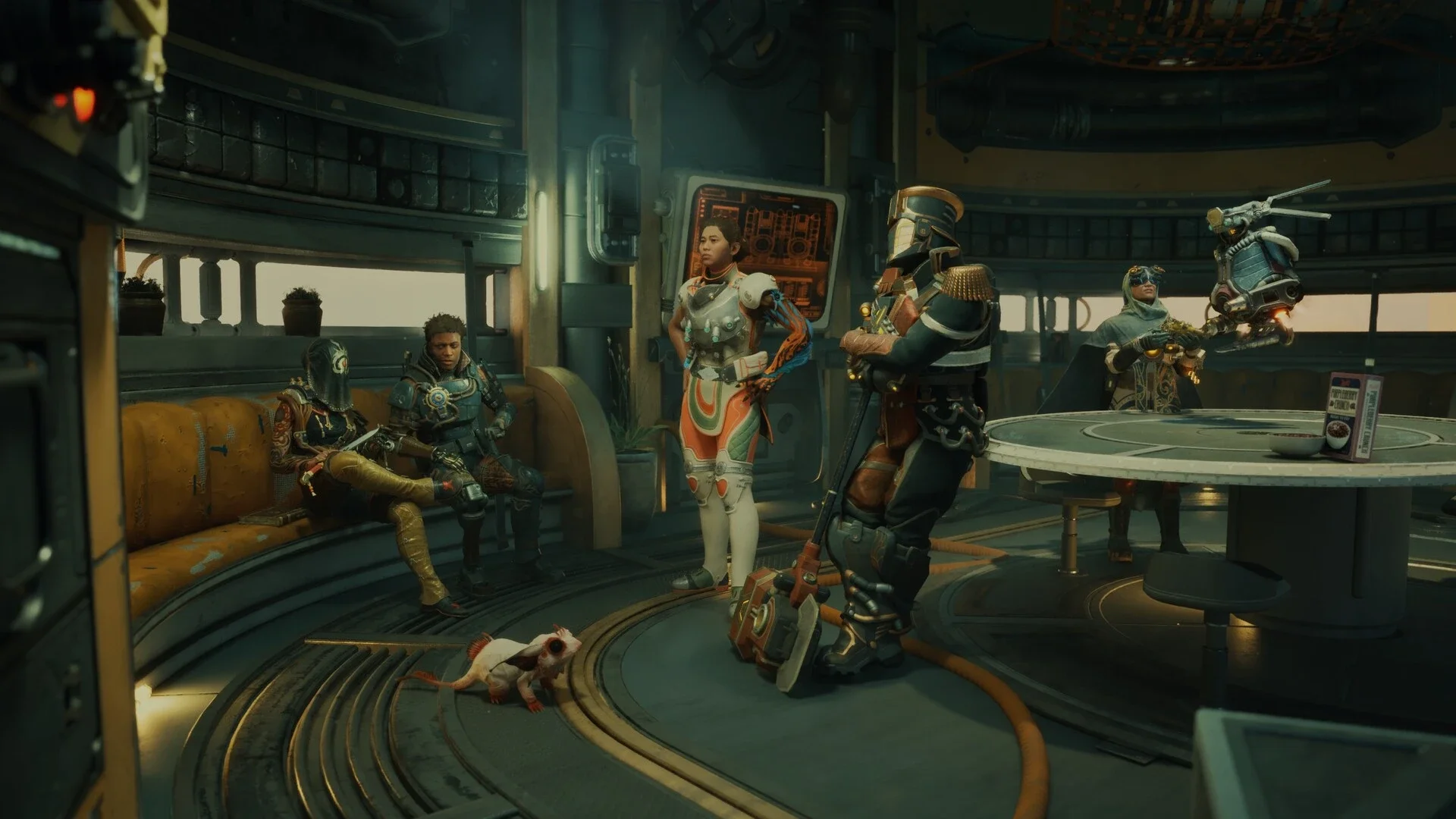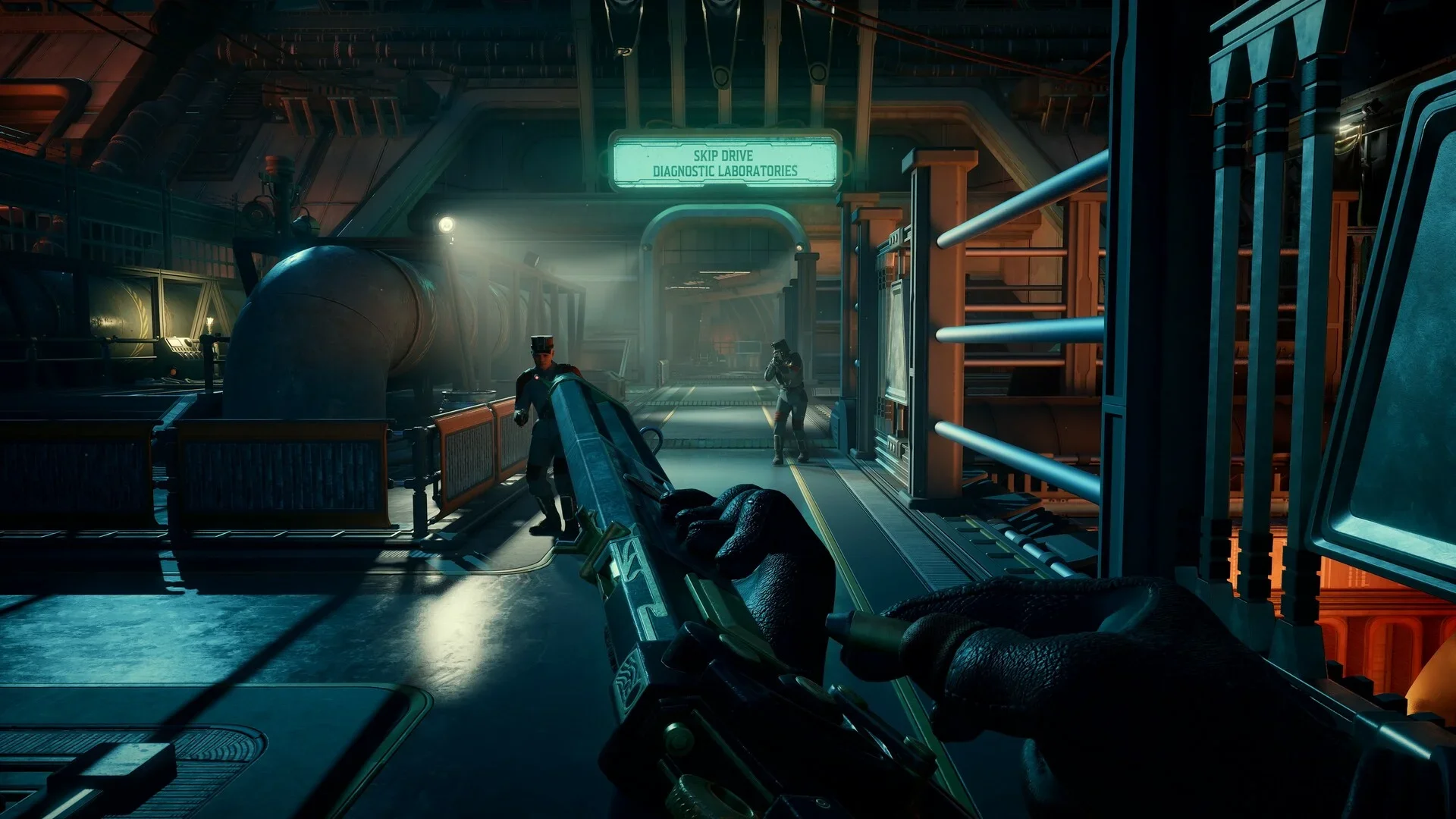The Outer Worlds 2 Review: Obsidian Remembers How to Make an RPG Again (And It's Glorious)
Let's be honest, the first Outer Worlds was... fine. It was cute, quirky, a decent little Fallout-lite snack. But The Outer Worlds 2? This isn't a snack. This is a full-course meal prepared by Obsidian chefs who suddenly remembered they used to cook up masterpieces like New Vegas.
This sequel takes the charming, retro-future, corporate-hellscape vibe of the original and injects it with some serious RPG steroids. We're in a new sector of space, playing a new character (the "Commander," an Earth Directorate agent), dealing with new factions (Auntie's Choice mega-corp vs. the Protectorate cult), and facing a new galaxy-threatening crisis involving space rifts. It's a clean break, story-wise, but the real upgrade is under the hood. This game has teeth.
No Respecs, No Regrets (Okay, Maybe Some Regrets)
The biggest, ballsiest change is the one that's going to piss off the most people: you cannot respec your character. Well, almost. You get one single chance right after the prologue, and that's it. Miss it, or confirm your choices, and you are locked in for the entire ~40-50 hour ride.
And I fucking love it. Obsidian's director nailed it when he said infinite respecs kill role-playing. This game forces you to commit. You have to pick a lane – smooth talker, sneaky bastard, gun nut, leader – and stick with it. You will constantly run into locks you can't pick, terminals you can't hack, and dialogue options you can't pass because you didn't specialize.
It sounds frustrating, but it makes your choices matter. It forces you to think, to plan, and to accept the consequences. My gun-toting leader build meant I missed out on tons of hacking opportunities, but aced speech checks and let my companions do the heavy lifting in fights. It felt mine.
Flaws Make Perfect (Or Perfectly Annoying)
The Flaws system is back and better than ever. The game watches how you play and offers you trade-offs. Constantly reload like a paranoid squirrel? Take the "Overprepared" flaw: bigger magazines, but a huge damage debuff if you ever actually empty one. Hack everything? Get offered double XP for hacking, but it costs twice the resources.
And yes, if you bought the Premium Edition like a good little consumer, the game offers you the "Consumerism" flaw right off the bat, mocking you while giving you vendor discounts but worse sell prices. It's brilliant, reactive character building disguised as punishment.
The Shooting Part is Actually Good Now?
Let's face it, the gunplay in the first game was... serviceable. Here? It's genuinely fun. Weapons feel punchy and distinct. You've got your standard ballistics, but also energy weapons, science oddities, and even stuff that runs on radioactive Zyranium gas. The Tactical Time Dilation (VATS, basically) returns, letting you slow time for precision shots.
It feels much more like a proper shooter this time around, meaning if you do want to spec purely into guns and ignore the RPG stuff, you can probably have a decent time. Though honestly, you'd be missing the best parts.
The Story Takes Its Sweet Time (But Gets There)
Okay, here's where I have some complaints. The story takes a while to get going. After a strong opening, the first major planet, Paradise Island, feels a bit slow. It's not until you hit the mid-game, unlock more planets, and reach a certain "tentpole" mission that the plot really digs its claws in.
The writing is still sharp and funny, often funnier than the first game. The anti-capitalist satire lands hard, especially against the mega-corp Auntie's Choice. But sometimes it leans more "cute than cutting," as one review put it. Your ship, the Incognito, looks cool but never quite feels like the Normandy – it lacks that "home" feeling.
Companions, Choices, and Consequences
The companions are a solid bunch. You get six total, each with their own quests, skills, and personalities. They feel well-integrated, chiming in during conversations and reacting to your decisions. Just don't piss them off too much, or they might actually leave you.
And the choices? They hit harder this time. Early on, you're forced to decide the fate of entire towns. Later, you're untangling conspiracies and deciding who lives and dies based on flimsy evidence. Thanks to the lack of respec, your skills (or lack thereof) directly impact the options available to you in these critical moments.
The Verdict
The Outer Worlds 2 isn't just "more Outer Worlds." It's what the first game should have been. Obsidian took the core concept and rebuilt the RPG systems from the ground up, creating something far deeper, more engaging, and genuinely replayable.
The commitment to meaningful choices, both in character building and narrative, is refreshing in an era of consequence-free gaming. Yes, the story takes a bit to warm up, and some playstyles might feel less viable than others due to the skill check demands. But the vastly improved gunplay, the hilarious writing, and the sheer satisfaction of carving out your specific path through this corporate hellscape make it absolutely essential for RPG fans. This feels like Obsidian finding its voice again.
Score: 9.0/10 - Obsidian's back, baby. Buy this game.


